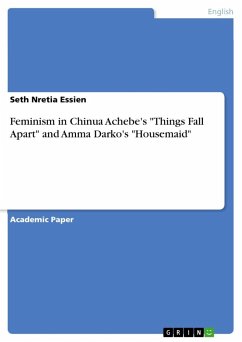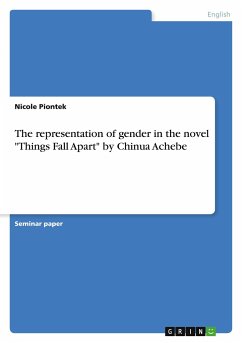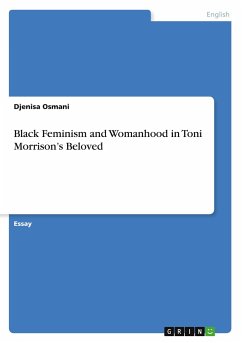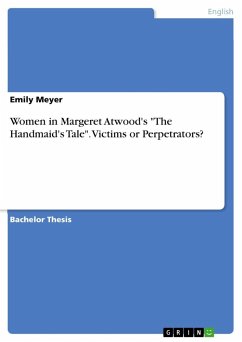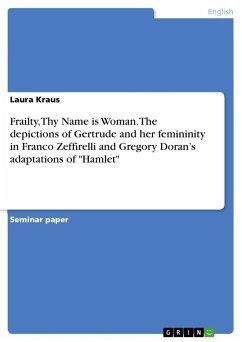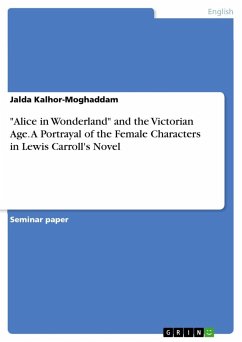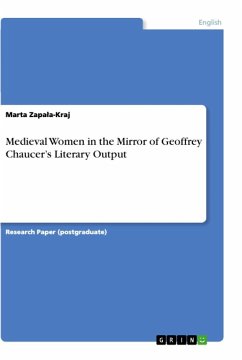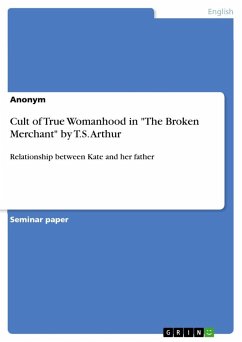Academic Paper from the year 2023 in the subject English Language and Literature Studies - Literature, University of Cape Coast (GRADUATE STUDIES DEPARTMENT), course: MASTER OF ARTS, ENGLISH, language: English, abstract: This paper postulates that in the African society, just as it is portrayed in "Things Fall Apart", there is segregation of roles, position and occupation according to gender, which deters women from embracing certain roles. This paper underpins the notion that feminism is a social construct and that a female person can equally portray herself as masculine through actions and words. Womanhood is described as weak, humble and subordinates. They are physically, sexually and psychologically abused. People have not paid much attention to it beyond going along with the assumption that this novel presents women as a sadly oppressed group with no power. This assumption may appear to be right, but upon delving beneath this deceiving surface, one can see that the women of the clan hold some very powerful positions. Thus, this article is an attempt to show the important role of women both in family and in African patriarchal society. The women¿s powerful positions in the clan deal with their functions, i.e. spiritually as the priestess, symbolically as the earth goddess, and literally as the nurturers of the Ibo people, the caretakers of the yam crops and the mothers and educators of the Ibo children. The discussion is based on Achebe¿s "Things Fall Apart" and few other references from Amma Darkös "Housemaid".

